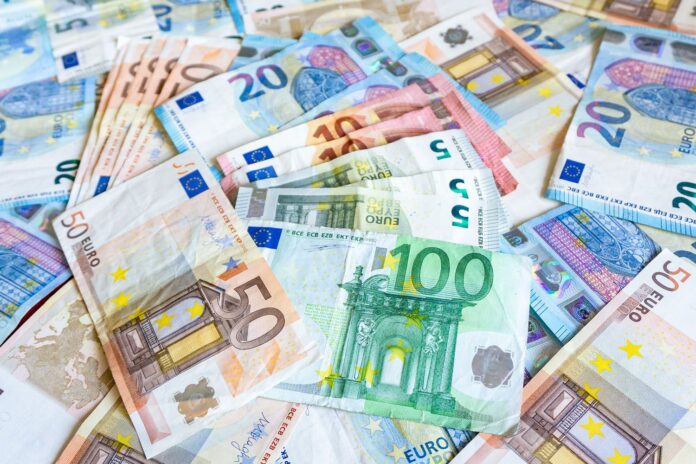
Inflation in the 19 countries using the euro currency has climbed to a record 8.6%, reports LRT.lt. Surging energy prices amid the Ukraine war have pushed prices up. The euro hit a record 8.6% in June, a half-percent increase from the previous record a month before.
Inflation was pushed by an increase in energy costs, which had risen 41.9% compared to last year’s numbers. The price increase has been partly connected to Russia’s war in Ukraine.
The cost of food, tobacco and alcohol also surged to a rate 8.9% more expensive than prices last year.
Baltic countries are the worst hit among eurozone members. Inflation in Estonia, Lithuania and Latvia now stands at over 18%. Six more countries in the 19-member euro area face inflation rates at 10% or above. The indicators are calculated on the basis of the Consumer Price Index (CPI) harmonized with other EU countries.
Inflation in Lithuania, reaching 20.5 percent in June, was mainly influenced by an increase in the prices of foodstuffs and non-alcoholic beverages, housing, water, electricity, gas and other fuels, as well as transportation.
Growing prices may have a dampening effect on consumption, economists say, which will be felt by business. With inflation at such a level, consumers tend to weigh their purchases more carefully. Sales are likely to decline in the second half of the year.
Luminor Bank economist Žygimantas Mauricas says that inflation may rise even higher in July due to rising electricity and gas prices. The high inflation rate increases the likelihood of deflation next year, already manifested in some markets, such as metals.
Indrė Genytė-Pikčienė, an analyst at INVL Asset Management, notes that grain exports from Ukraine and the future harvest are a cause for concern. “What autumn will bring depends on a number of factors, which are no longer in the economic framework, but will depend on the results of the harvest, the weather conditions, and the geopolitical environment.”
Inflation in Germany fell slightly in June. It now stands at 8.2% — a half-percent decrease from May numbers. However, inflation of the euro itself is at its highest level since record-keeping for it began in 1997. Price increases of goods such as clothing, appliances, cars, computers and books remained steady, as did prices for services.
The European Central Bank said it will do whatever it takes to bring energy and food prices back to target levels. To counter climbing prices of consumer goods, the euro-managing institution is planning its first interest rate hike in 11 years. It is due to take effect this month and will be followed by another rate increase in September.





























